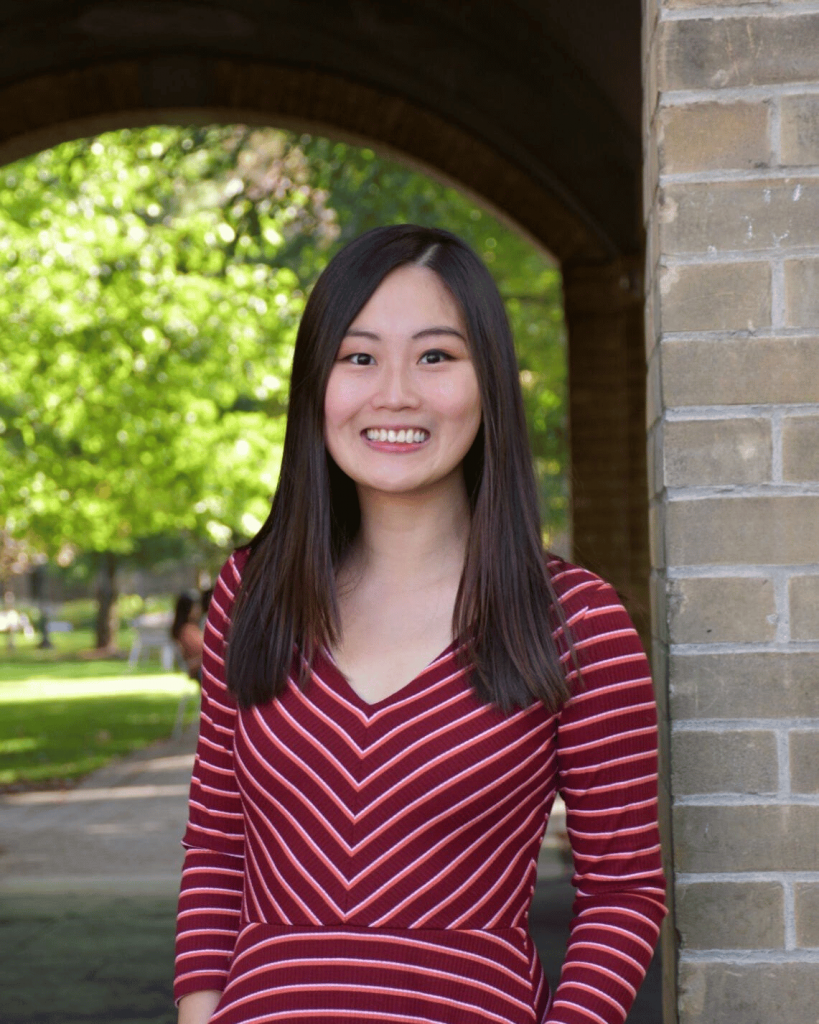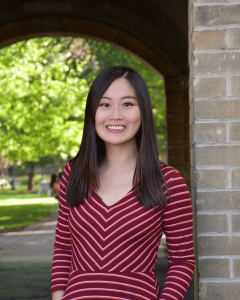This September, the Centre for Global Social Policy published the first edition of our new bi-monthly newsletter, filled with news, insights, and opportunities from CGSP and our network. (Be sure to subscribe if you haven’t already!)
September’s newsletter spotlight is on Assistant Professor Leafia Ye, Principal Investigator of the project Immigrant Integration and Health: Multidimensional and Cross-National Analyses Over the Life Course.
The newsletter contains an excerpt from the full interview, which you can read below.

How did you first become interested in your area of research/ dissertation topic?
Leafia Ye: I study immigrant integration and aging. More specifically, I study how immigrants’ outcomes evolve as they adapt to host societies and get older – in terms of their economic well-being, their friendship networks, and their physical and mental health. Much of my work is ultimately about inequalities, such as how and why immigrants’ life trajectories diverge from those of the native-born.
Like many academics, I have moved quite a bit in my life – grew up in Shanghai, went to university in Hong Kong, and did my graduate studies in Madison, Wisconsin. The formative years where I was learning to be an adult was also a time when I was exposed to very multicultural societies for the first time, so I carried a lot of curiosity on my mind. For example, I noticed how different my personal adaptation journey was when I moved to different places, and that made me think about how host societies play an active role in immigrants’ settlement process. When I went to grad school, I was very excited to realize that many of these questions can be answered with data that have already been collected by large surveys.
What is something surprising that has emerged during your research?
Leafia Ye: We know from prior research that immigrants are often economically disadvantaged when they first move to a new country, but they experience faster income growth than locals and are therefore able to catch up over time. Surprisingly, one of my recent studies has revealed that immigrants in the US experience the opposite trend in later life: people all experience a decline in income when they age and retire, but immigrants’ income declines much faster than those who were born in the US. As a result, older immigrants are a very vulnerable group when it comes to economic resources.
Although this phenomenon is surprising, the mechanisms behind it are not. I show in the study that immigrants accumulated a lot of disadvantage in retirement income even as they were experiencing growth in their labor force income. For example, they often do not have as many cumulative years of work to contribute to social insurance programs, so they receive less from Social Security when they retire. They were also in jobs that provided poorer benefits, and their employers did not contribute as much to their pensions. Ultimately, much of older immigrants’ income disadvantages are attributable to structural inequalities in the social safety net and the labor market.
What challenges or social problems have you encountered through your research, and what kinds of policies are required for addressing them?
Leafia Ye: Through my research, I have encountered multiple layers of inequalities by immigration status. The most obvious and egregious layer is inequality by institutional design. For example, I have found that even after accounting for educational attainment, individuals who grew up undocumented in the U.S. earn much lower wages than others because they are legally vulnerable. Temporary legal relief policies have proved somewhat helpful, but a more effective policy would be about providing pathways to citizenship for childhood arrivals.
Then there are layers of inequalities that are more invisible, such as the fact that foreign-born people have less time to contribute to retirement programs and are therefore economically disadvantaged in later life. I have also found that immigrant children have more struggles with forming friendships, likely due to stereotypes about immigrants and about various racial groups. It is often difficult to directly address those types of inequalities with a specific policy, but any initiatives that promote equity and provide support to immigrant populations at younger ages would be helpful in the long term.
What do you wish the general public knew about your research, and what would you like them to do with this knowledge?
Leafia Ye: Sometimes, there is a narrative that the work of sociologists often just confirms common sense. For my work, I may get questions like “but we already knew that immigrants face challenges. What is so surprising about that?”
I want the general public to know that there is a lot that is surprising and counterintuitive about immigrants’ outcomes when we look at them closely. Even the facts can sometimes seem at odds with each other – for example, immigrants live longer than the native-born but they are often not as healthy. By understanding why immigrants face the challenges they face, we can learn not just about how to improve immigrants’ outcomes but also about how our world works. I also want people to take this knowledge as a reminder that just because inequalities are sometimes persistent does not mean we should tolerate them; we can come up with effective solutions if we first study the roots of inequalities thoroughly.
What advice do you have for students who are interested in doing research that takes up themes that are similar to yours?
Leafia Ye: My advice is to invest in the skills of seeing both the “small picture” and the “big picture”. There are many immigrant groups who were admitted via different categories and arrived at different ages. To start working on any project, one needs to be able to zoom in – on an immigrant group, a time period, or a policy change, etc. – so that the project has a defined and manageable scope. At the same time, it is easy to be so specific that one loses sight of why the research matters in the first place and what implications it carries. It is therefore important to reflect on the significance of the specific topic and its connection with broader themes in the literature. Does it help resolve a bigger debate? Is it one step closer to solving a long-standing puzzle? Accumulating these skills take time and practice, too, so my other advice is to always be kind to yourself and stay patient!
Related Profiles
-

Leafia Ye
Researcher

